Trigger-Based Agricultural Micro Insurance in Vietnam (InsureVietnam)
- Title
-
Rigorous Impact Evaluation of the Trigger-Based Agricultural Micro Insurance in Vietnam (InsureVietnam)
- Research Institute
-
RWI - Leibniz Institute for Economic Research
- Funding period
-
from: 01.03.2023
to: 30.09.2025 - Country and Region
-
Vietnam; Ha Tinh province, Thua Thien Hue province, and Dak Lak province
- Sector
-
Climate and energy, just transition - climate protection and adaptation to climate change
- Development Organisation
-
KfW
- Research Design
-
RCT
Project description
Short Description
Rigorous Impact Evaluation of the Trigger-Based Agricultural Micro Insurance in Vietnam (InsureVietnam)
Climate change is increasing the intensity and frequency of extreme weather events. Smallholder farm households in the Global South that depend on weather conditions for their living are particularly affected. Not only are these households more geographically exposed to extreme weather events, they are also less resilient when hit by shocks of this kind.
With climate change progressing rapidly, there is a pressing need to provide effective adaptation instruments that can assist farm households in the Global South in adapting to increasingly extreme weather conditions.
Parametric insurance (also referred to as index-based or trigger-based insurance) is a market-based adaptation instrument aimed at increasing the climate resilience of farm households. Policyholders receive insurance payouts whenever an index, such as rainfall or temperature and defined at an aggregated geographical level, exceeds or falls short of a predefined threshold. If an extreme weather event occurs, insurance payouts are expected to help households recover faster from the damages caused by the shock.
However, important questions remain that hinder the development of the insurance sector.
DEval will fund the impact evaluation of a Trigger-Based Agricultural Micro Insurance in Vietnam, which is aimed at increasing the climate resilience of smallholder farmers.
Context
In Vietnam, the agricultural sector employed around 37% of the workforce as of 2019, whose livelihood depends on weather conditions. More than half of the smallholder farm households in Vietnam live below the national poverty line. Their livelihood is put at risk further by extreme weather events, including excessive rainfall, storms and droughts.
Innovation & Method
The development project, in cooperation with partners, will launch a parametric insurance product aimed at protecting small-scale farmers against extreme weather events.
The research project will implement three Randomised Controlled Trials (RCTs). Randomisation for all three RCTs will be done at the village level to minimise the potential for spillover effects. In the first RCT, treatment households will be offered the chance to purchase parametric insurance, while households in villages assigned to the control group will not be offered the chance to purchase insurance. In the second RCT, farm households in randomly selected villages will receive training on the product design of the parametric insurance. The third RCT is an information treatment. Climate projections will be presented to about half of the sample households using a randomised selection process.
Expected results/Research questions
The project aims to provide new and methodologically rigorous evidence on the following research questions:
(1) Does access to parametric agricultural insurance in Vietnam enhance households’ resilience?
(2) Do premium discounts encourage the uptake of insurance among farm households?
(3) Does providing training on product understanding encourage the uptake of insurance?
(4) Does providing farm households with access to climate projections encourage the uptake of insurance?

